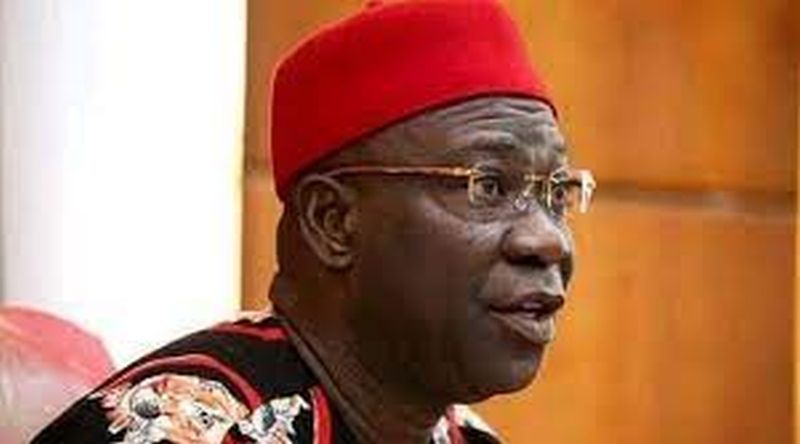Understanding the Ekweremadu Organ harvesting charge
By Chukwudi Nwabuko in London
There is a seeming misconception amongst Nigerians- majority of who believe that the fact the UK court last Thursday confirmed the age of David Ukpo, the lad at the centre of the organ harvesting saga involving senator Ike Ekweremadu and his wife Beatrice- was a positive or a win for the Ekweremadus in the case before them in the British court.
I read many analysis and news reports in the Nigeria media to the effect that the Ekweremadus scored a bull’s eye that could eventually culminate in the matter being dismissed, maybe at the next hearing slated for August 4.
The crux of the matter
To those who understand the crux of the case, it is a misreading of the situation.
Ike and Beatrice are facing charges bordering on conspiracy to arrange or facilitate the travel of another person with a view to exploitation, namely organ harvesting.
One of the ‘facts’ made available by the police on June 23, 2022, when the matter was first brought to the court was that David claimed to be 15 years of age at the time he reported to the Police. Based on this, the court made an order that being a minor, his identity should not be revealed while the case lasted.
Now with the right information as regards his age, the defence in a written statement before the Westminster Magistrates Court on Thursday July 7, confirmed that David was 21 years. The prosecution and the defence agreed and no party raised any objection.
Having confirmed that he was 21 years old, the presiding judge, Tanwer Ikram lifted the order against naming him when his age was believed to be 15.
But that is as far as it goes.
It does not in any way detract from the charge that the case is about ‘organ harvesting’. The matter of the age of the boy in question appears immaterial from the substantive case of organ harvesting and exploitation.
The case against the former deputy senate president and his wife is about organ harvesting. This is a euphemism for trying to purchase a kidney or body part from a donor. Under UK laws, paying money for the use of any body part contravenes the law.
Embodied in the United Kingdom’s Modern Slavery Act 2015, it frowns at human trafficking under which organ harvesting falls and is punishable with a maximum sentence of life imprisonment upon conviction.
Deriving from the above is the understanding that UK laws frown at any financial inducement or consideration to compel another to donate a body part. It does not matter whether the individual was a minor or adult, as long as it involves monetary consideration, the action appears illegal.
The charges are criminal charges and punishable if proven guilty.
It therefore means that the prospect of Ekweremadu escaping the long arm of the law appears dim in the light of the efforts to be deployed by the Met Police to prove their charges.
Anyone who understands the operations of the Met Police knows that this crop of officers are usually thorough in their investigations. If they were not confident of getting a conviction, the likelihood of prosecuting a foreign national and influential politician of Ekweremadu’s status would have stalled the move. That they went ahead to prosecute and even deny them bail is a pointer that they might have done their homework before deciding to prosecute.
The Palermo Protocol
For the avoidance of doubt, the key legal framework governing organ trafficking and the like is the United Nations Palermo Protocol which focuses on trafficking of human beings. The key notion in this protocol provides that in order for trafficking in human beings to be recognised as organised crime it must entail all of three elements: an action (recruitment, transport), the means used to achieve that action (deception, fraud, coercion), and the purpose (exploitation in case of organ removal).
Given its wide definition and scope of what constitutes ‘trafficking in human beings’, this Protocol has been adopted by other international and European organisations as the cornerstone for law enforcement measures against human traffickers.
In the present case the question that ought to be asked is: “Were the three essential ingredients met? Was there an action? What was the means to recruit David? Coercion? And for what purpose was he brought to England?
The onus would be on Ekweremadu to prove that he did not infringe on this planks of the law.
At the end of the court proceedings last Thursday, in a chat, the prosecuting counsel, Mr. Tim Probert-wood was asked the likely implication of the new David’s age to the likely outcome of the case, especially if it would have any impact on the case.
To this Tim chuckled pointing out that the age of the boy at the centre of the case did not matter nor alter the substance of the case.
According to him, whether he was 15 or 21 does not make much difference and would not prevent the case from being progressed.
He said that the crux of the matter was the presence of the essential ingredients of trafficking and organ harvesting, stressing that form his own point of view they have a water-tight case against the Ekweremadus.
On how the Ekweremadu case could impact on UK-Nigeria relationship considering the social standing of the accused and his wife, Probert-wood said British law is no respecter of persons, noting that they are not shackled by consideration of the ‘position’ of any individual even as he pointed out that the law would take its course notwithstanding it is a ‘big or small’ man.
He however opened a window through which Ekweremadu and his wife can escape UK justice: If they win the argument to transfer the case to Nigeria- of course being aware that the courts in Nigeria defer to well-heeled people and can equally dispense justice based on the size of your pocket and level of influence and where the common man is treated with disdain.





